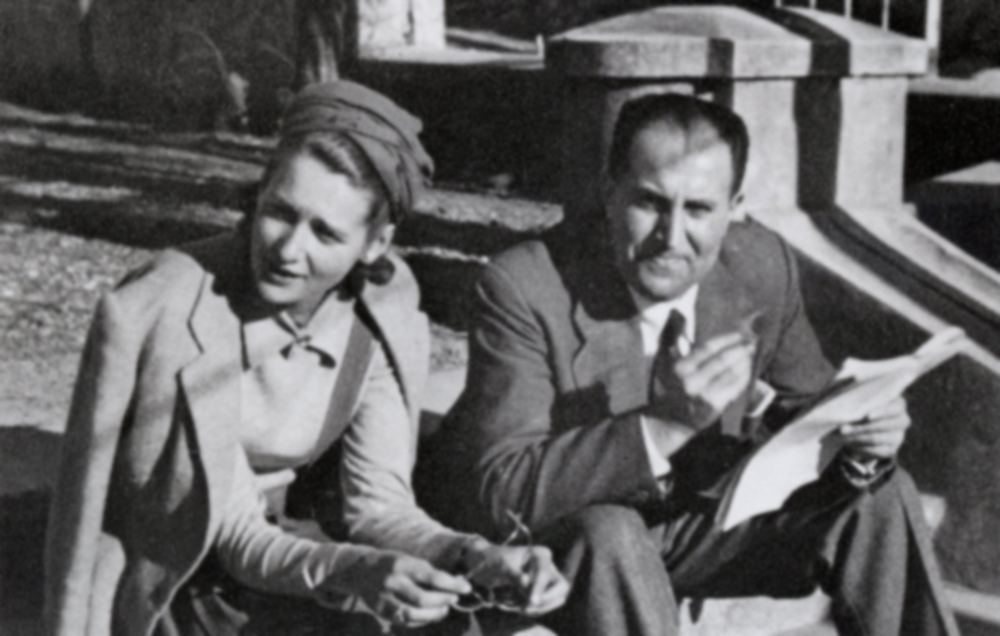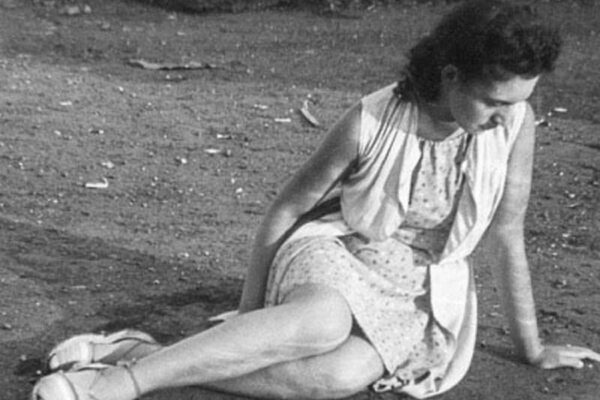Centro Primo Levi congratulates Sandro Gerbi
On November 21st, the cultural historian and journalist Sandro Gerbi will be awarded the 2014 Premio Biella—a book prize devoted to the intersections of industry and literature— for his recent Giovanni Enriques, dalla Olivetti alla Zanichelli (Hoepli, Milano 2013).
Following the life and work of the Italian Jewish entrepreneur Giovanni Enriques (1905-1990), Gerbi masterfully reconstructs the passion of a man who conjugated pioneering industrial strategies with cultural vision against the background of Italy’s post-war economic boom.
The book seamlessly blends absorbing literary prose with acute psychological insight, and the indispensable historical knowledge to provide a nuanced context to Enriques’ trajectory.
The volume comes with a DVD of Luigi Faccini’s documentary film Giovanni Enriques che seppe immaginare il futuro.
Here is Andrea Casalegno review of Gerbi’s pitch perfect book from L’Indice dei Libri del Mese:
Giovanni Enriques who was born in Bologna on January 24, 1905 and died in Milan on 21 May 1990. The son of a prominent mathematician (Federigo Enriques) and father of Lorenzo (1939) and Federico (1941), he gradually entrusted to his sons the revival and major expansion of the Zanichelli publishing house.
Giovanni Enriques is probably the least known member of an intellectual and entrepreneurial dynasty that played a major role in Italian history. Recounting his life was not an easy task, since its importance is not in the writings he left, but rather in his entrepreneurial work (at all times defined by his cultural vision).
This entrepreneurial activity had to be reconstructed from a painstaking excavation into the family memories and documents (above all, in Enriques’correspondence) and through a large number of interviews and eyewitness accounts. Sandro Gerbi, who had long been in contact with the Enriques family through his father Antonello, devoted years to this work, encouraged all along by Giovanni’s sons, Federico and Lorenzo.
The result is an invaluable volume —Giovanni Enriques dallla Olivetti alla Zanichelli, with a DVD by Luigi Faccini, 288 pages, Hoepli, Milano, 2013—which fills a gap in the history of the intertweaving of industry and culture in Twentieth century Italy. Born into a cultured Jewish family from Livorno, the third son of Federigo and Luisa Coen, he attended the Liceo Tasso in Rome.
Among his friends were Enrico Fermi and Emilio Segre, with whom he shared a passion for mountaineering ( in 1927, he climbed the Cervino, scaling the forbidding Italian side and descending on the Swiss side, and in 1930 climbing the North Face of the Tour Ronde). Giovanni shared his father’s passion for science, but from a practical rather than theoretical perspective. He got a degree in engineering on November 15, 1929 and, after an interview with Adriano Olivetti, on February 1st of the following year, he joined Olivetti Company in Ivrea.
Appreciated by the company’s founder, Camillo Olivetti, Enriques had a rapid career ascent and in 1936 (the year of his marriage to Emma Cosattini) was appointed Director of the Foreign Office. The most dramatic period of his life was fast approaching: after the implementation of the Racial Laws, he managed to obtain a dispensation (discriminazione), by using a false certificate of aryanization, and thus was able to remain amongst the top ranks of Olivetti.
When Adriano Olivetti fled to Switzerland, Enriques took the reins of the company, along with Gino Martinoli (originally Gino Levi) and Giuseppe Pero, while establishing and maintaining constant contact with the Resistance. At the end of 1944 Enriques’ resourcefulness was instrumental in satisfying the demands of the Nazis by means of a variety of expedients, thus saving the Olivetti industrial plants from the Germans destruction plans.
During this period, his first wife Emma died tragically of typhus. After a period of difficulties also due to unjustified suspicions about his activities as head of Olivetti during the German occupation, Giovanni Enriques returned to the commercial management department of Olivetti and later to general management. Meanwhile, his uncle, Isaiah Levi, who had married his mother’s sister, transferred to him the majority stake in the Aurora pen factory and a substantial share of the Zanichelli, the prestigious Bologna-based publishing house, which had, among other things, the rights to the works of Carducci.
When, in 1953, differences on management with Adriano Olivetti will determine him to leave the Olivetti Company, Giovanni Enriques devoted an increasing share of his activities to the family business, re-launching Aurora after the war, then assuming full responsibility of Zanichelli in 1959.
All the while without neglecting his other important commitments: the direction of IPSOA (Italy’s first postgraduate institute for the study of business organization), created by Olivetti, Fiat and the Union of Turin industrialists, as well as a consulting position at Stefano Siglienti’s IMI (Institute of the Italian Securities), while also venturing into pioneering tourist enterprises.
Giovanni Enriques was an industry leader across the board, who even tried to conceive a different model for Italy’s tourism industry (through a project at Capo Caccia, Sardinia) apparently far from his main interests. In the last decades of his life Enriques devoted progressively more of his efforts to his passion for publishing, especially to popularizing science.
Older readers will remember the (Olivetti inspired) originality and uncommon graphic elegance of Enriques’ publishing ventures: among others the eight monographic volumes of the AZ Panorama encyclopedia, combining the initials of his two companies, Aurora and Zanichelli. Enriques was involved with the encyclopedia both as author and entrepreneur: he was general editor, wrote himself most of the second volume, Man and Technology and hand picked collaborators of the highest level, such as: Geno Pampaloni and Giovanni Arpino, Franco Fortini and Enrico Castelnuovo, Pietro Calamandrei, Italo Calvino, Giulio Carlo Argan and especially Delfino Insolera, who was appointed editor of Zanichelli in 1960.
Beyond the reconstruction of a little known yet inspiring industrial and managerial story, the interest of this volume lies in bringing to life the constant dialogue between Giovanni Enriques and a wide array of intellectuals engaged in the reconstruction of post-war culture.
Gerbi’s vivid account and exhaustive footnotes allow us to follow Enriques’ ongoing dialogues and interactions with the Italian managerial and intellectual elite (beyond his Olivetti associates) and makes us long for a time when the separation between industry and culture was less rigid, and the pursuit of profit seemed compatible with civic engagement.









